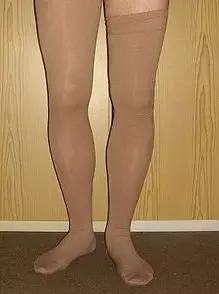- Home
- Medical news & Guidelines
- Anesthesiology
- Cardiology and CTVS
- Critical Care
- Dentistry
- Dermatology
- Diabetes and Endocrinology
- ENT
- Gastroenterology
- Medicine
- Nephrology
- Neurology
- Obstretics-Gynaecology
- Oncology
- Ophthalmology
- Orthopaedics
- Pediatrics-Neonatology
- Psychiatry
- Pulmonology
- Radiology
- Surgery
- Urology
- Laboratory Medicine
- Diet
- Nursing
- Paramedical
- Physiotherapy
- Health news
- Fact Check
- Bone Health Fact Check
- Brain Health Fact Check
- Cancer Related Fact Check
- Child Care Fact Check
- Dental and oral health fact check
- Diabetes and metabolic health fact check
- Diet and Nutrition Fact Check
- Eye and ENT Care Fact Check
- Fitness fact check
- Gut health fact check
- Heart health fact check
- Kidney health fact check
- Medical education fact check
- Men's health fact check
- Respiratory fact check
- Skin and hair care fact check
- Vaccine and Immunization fact check
- Women's health fact check
- AYUSH
- State News
- Andaman and Nicobar Islands
- Andhra Pradesh
- Arunachal Pradesh
- Assam
- Bihar
- Chandigarh
- Chattisgarh
- Dadra and Nagar Haveli
- Daman and Diu
- Delhi
- Goa
- Gujarat
- Haryana
- Himachal Pradesh
- Jammu & Kashmir
- Jharkhand
- Karnataka
- Kerala
- Ladakh
- Lakshadweep
- Madhya Pradesh
- Maharashtra
- Manipur
- Meghalaya
- Mizoram
- Nagaland
- Odisha
- Puducherry
- Punjab
- Rajasthan
- Sikkim
- Tamil Nadu
- Telangana
- Tripura
- Uttar Pradesh
- Uttrakhand
- West Bengal
- Medical Education
- Industry
Low-dose LMW heparin as effective as compression stockings in reducing VTE: finds study

Patients admitted to hospital for surgery are at an increased risk of venous thromboembolism. Pharmaco-thromboprophylaxis and mechanical prophylaxis (usually graduated compression stockings or intermittent pneumatic compression) have been shown to reduce the incidence of venous thromboembolism.
The evidence base supporting the National Institute for Health and Care Excellence's recommendation for the use of graduated compression stockings for venous thromboembolism prevention in the UK has recently been challenged. It is unclear if the risks and costs associated with graduated compression stockings are justified for deep-vein thrombosis prevention in moderate- and high-risk elective surgical inpatients receiving low-dose low-molecular-weight heparin pharmaco-thromboprophylaxis.
In a recent development,researchers have shown that Low-dose low-molecular-weight heparin was non-inferior in reducing venous thromboembolism events in surgical patients at medium or high risk compared with use of graduated compression stockings in addition to heparin.the findings have been published in Health Technology Assessment.
The study was undertaken with the primary objective to compare the venous thromboembolism rate in elective surgical inpatients at moderate or high risk of venous thromboembolism who were receiving either graduated compression stockings and low-dose low-molecular-weight heparin (standard care) or low-dose low-molecular-weight heparin alone (intervention).
This was a pragmatic, multicentre, prospective, non-inferiority, randomised controlled trial.
This took place in secondary care NHS hospitals in the UK
Patients aged ≥ 18 years who were assessed to be at moderate or high risk of venous thromboembolism according to the NHS England venous thromboembolism risk assessment tool (or the trust equivalent based on this form) and who were not contraindicated to low-molecular-weight heparin or graduated compression stockings were deemed eligible to take part.
Participants were randomised 1 : 1 to either low-molecular-weight heparin or low-molecular-weight heparin and graduated compression stockings.
The primary outcome measure was venous thromboembolism up to 90 days after surgery. A combined end point of duplex ultrasound-proven new lower-limb deep-vein thrombosis (symptomatic or asymptomatic) plus imaging-confirmed symptomatic pulmonary embolism. Secondary outcomes included quality of life, compliance with graduated compression stockings and low-molecular-weight heparin during admission, and all-cause mortality.
Data analysis revealed the following facts.
- A total of 1905 participants were randomised and 1858 were included in the intention-to-treat analysis.
- A primary outcome event occurred in 16 out of 937 (1.7%) patients in the low-molecular-weight heparin-alone arm compared with 13 out of 921 (1.4%) patients in the low-molecular-weight heparin plus graduated compression stockings arm.
- The risk difference between low-molecular-weight heparin and low-molecular-weight heparin plus graduated compression stockings was 0.30% (95% confidence interval –0.65% to 1.26%).
- As the 95% confidence interval did not cross the non-inferiority margin of 3.5% (p < 0.001 for non-inferiority), the results indicate that non-inferiority of low-molecular-weight heparin alone was shown.
"For elective surgical patients at moderate or high risk of venous thromboembolism, administration of pharmaco-thromboprophylaxis alone is non-inferior to a combination of pharmaco-thromboprophylaxis and graduated compression stockings. These findings indicate that graduated compression stockings may be unnecessary for most elective surgical patients."the team concluded.
For the full article follow the link: Shalhoub J, Lawton R, Hudson J, Baker C, Bradbury A, Dhillon K, et al. Compression stockings in addition to low-molecular-weight heparin to prevent venous thromboembolism in surgical inpatients requiring pharmacoprophylaxis: the GAPS non-inferiority RCT. Health Technol Assess 2020;24(69)
Dr Satabdi Saha (BDS, MDS) is a practicing pediatric dentist with a keen interest in new medical researches and updates. She has completed her BDS from North Bengal Dental College ,Darjeeling. Then she went on to secure an ALL INDIA NEET PG rank and completed her MDS from the first dental college in the country – Dr R. Ahmed Dental College and Hospital. She is currently attached to The Marwari Relief Society Hospital as a consultant along with private practice of 2 years. She has published scientific papers in national and international journals. Her strong passion of sharing knowledge with the medical fraternity has motivated her to be a part of Medical Dialogues.
Dr Kamal Kant Kohli-MBBS, DTCD- a chest specialist with more than 30 years of practice and a flair for writing clinical articles, Dr Kamal Kant Kohli joined Medical Dialogues as a Chief Editor of Medical News. Besides writing articles, as an editor, he proofreads and verifies all the medical content published on Medical Dialogues including those coming from journals, studies,medical conferences,guidelines etc. Email: drkohli@medicaldialogues.in. Contact no. 011-43720751


